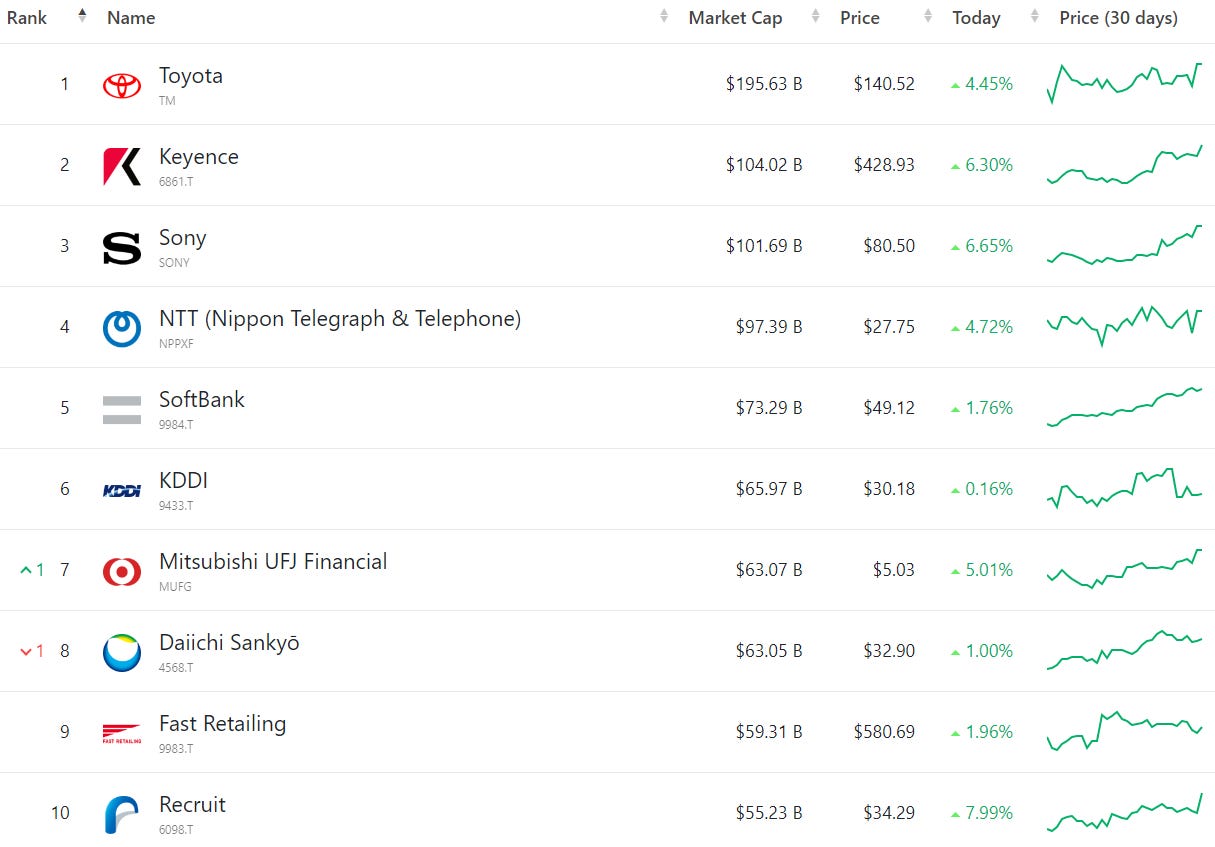As you probably have heard, the Japanese yen has fallen drastically this year. In fact, since the beginning of 2022, the Japanese Yen has lost 23% of its value to the US dollar.
The little talked-about effect the currency drop has had for Japanese investors is that US stocks have often been very lucrative despite their massive drops.
The most popular stock index in the world, the S&P 500 has dropped 17.52% this year. This is the biggest drop since the financial crisis of 2008, and understandably, a lot of people have lost millions of dollars.
However, if you invested your hard-earned Japanese yen into the S&P 500 in January this year, you’ve actually gotten a return of 5.48%!
Why Japanese stocks are a bargain now
On the surface, it looks like the main stock-index in Japan, the Nikkei 225 (read more about it here), has fared much better than the S&P 500, with a drop of only 3.49% YTD.
However, in USD terms, it is down 26.49%…
So, does this mean that Japanese companies are in much worse shape than their US counterparts? No, in fact, the yen drop has likely made them more competitive!
You see, Japan is a significant export economy and has exports in excess of $700bn of goods annually, making it the fourth-largest export economy in the world. Pre-Covid, the country enjoyed a positive trade balance of $59.2bn, with total annual exports of $713bn exceeding imports of $653bn. Even though the pandemic and the following energy crisis have put Japan at a trade deficit, which means a big part of the economy suffer as a result, most major companies are net exporters.
Looking at the 10 largest companies in Japan, 6 are export oriented:
As such, a cheap yen makes exports much more profitable for these companies and their profits are likely to go up. Hence, even though their stocks have fallen this year, their profits are likely to be substantially higher.
As Japan is natural-resource poor, most raw material must be imported. As the yen is so weak, imports will be more expensive, but as Japanese exporters are high-end manufacturers and processors, the input material cost is mostly a small part of the total export value. Hence, a weak yen is net-positive for Japan Inc.
Of course, headwinds like a further dip in the yen or a global recession could make Japanese stocks drop further. However, looking at their fundamentals, there has never been more undervalued companies in Japan than right now.
As such, the only logical conclusion is that Japanese stocks look like the bargain of the century for Japanese and foreign investors alike.






